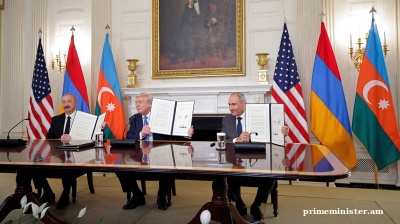What started off in 2009 as an eclectic coalition of emerging economies seeking greater global influence has crystallised into something far more consequential: a group that US President Donald Trump now considers threatening enough to warrant punitive tariffs. During BRICS’ recent summit in Rio de Janeiro, the irony was not lost on Brazilian President Lula da Silva, who dismissed Trump's additional 10% tariff threats as signs of "desperation mode," and on the South African leadership, who saw the threats as validation that "BRICS matters and is relevant."
But beyond the headlines and diplomatic posturing lies a more complex story, here revealed through conversations with experts across five continents. Their perspectives paint a picture of a world in transition, where traditional alliances are thrown into disarray and new partnerships are being forged – sometimes reluctantly, sometimes with great enthusiasm.
Brazil's sustainability gambit: leading by example or struggling with contradictions?
Claudya Piazera, CEO of Smart8 LCC and a Circular Economy Ambassador, who has worked with UNDP, UNCTAD, and WIPO, embodies Brazil's ambitious vision for BRICS leadership. "Brazil stands to gain significantly from BRICS' infrastructure finance and South-South cooperation – a pathway to more sustainable investment in agroforestry, renewable energy, and circular economy projects," she explains, her voice carrying the enthusiasm of someone who has long navigated the corridors of international organisations.
However, Piazera's analysis also lays bare the central paradox of Brazil's BRICS strategy. While the country positions itself as a bridge between climate ambition and development needs, "persistent governance challenges, particularly corruption," threaten to undermine its credibility. "Such issues not only stall progress in sustainable development and circular economy innovation but also erode Brazil's credibility among G7 nations and key international institutions," she observes.
Brazil's approach reflects broader BRICS dynamics, characterised by an everlasting tension between aspiration and execution. The country sees the bloc as offering "economic opportunity through trade diversification," "diplomatic autonomy," and "soft power gains through collaboration in cultural, technology, and educational initiatives." Yet internal resistance comes from "fiscal hawks and environmental advocates worried about standards and governance transparency in some partner nations."
The Latin American ripple effect: Cuba, regional integration, and strategic autonomy
The Rio Summit's expansion to include partnerships with Cuba, Nicaragua, and other Latin American nations signals a potential transformation of regional dynamics. Chile and Uruguay were invited to participate in the BRICS summit. Venezuela's accession bid, however, was vetoed by Brazil during last year’s gathering in Kazan over democracy concerns following a disputed election, which saw President Nicolas Maduro secure a third term amid widespread allegations of fraud. Although Lula later signalled that this position may change. While Latin America has been considered the United States' "backyard" for decades, the BRICS expansion now offers an alternative integration model that bypasses traditional North-South dependencies.
The Rio summit's final declaration, featuring "the strongest pro-Palestinian language ever in a BRICS document" and condemnation of "illegal attacks on Iran,” firmly places Latin America within broader Global South solidarity networks. This represents a significant shift from the region's historical tendency to avoid taking sides in global conflicts, driven partly by US pressure and partly by pragmatic considerations.
For countries across the region watching Brazil's experiment, the stakes are enormous. Success could inspire broader Latin American engagement with BRICS, while failure might reinforce traditional dependencies on Washington. The establishment of the BRICS Multilateral Guarantees and progress towards alternative payment systems offer tangible benefits that extend beyond Brazil's borders.
Global South voices: from the UAE's pragmatism to Algeria's aspirations
Dr. Kristian Alexander, Senior Fellow at the Rabdan Security & Defense Institute (RSDI) in Abu Dhabi, represents a voice of the UAE's pragmatic approach to BRICS engagement. "For the UAE, participation in BRICS+ represents an opportunity to diversify its global partnerships, reduce dependency on Western-centric institutions, and engage with high-growth economies in the Global South," he explains.
The UAE's strategy aligns with the Gulf states’ sophisticated hedging, using BRICS membership to balance "between traditional Western partners and emerging powers." This approach proves "particularly useful given the shifting dynamics in the Gulf, the Red Sea, and the Indo-Pacific." Yet Alexander acknowledges challenges: "The divergent national interests among BRICS members (e.g., India-China tensions) may limit the UAE's ability to gain consensus on regional or international issues it cares about."
From Algeria, Karim Fess provides insight into a country that applied for BRICS membership but faced rejection. His analysis reveals both the bloc's appeal and its limitations for aspirant nations. "BRICS represents a powerful global bloc, comprising over 42% of the world's population and 31.5% of global GDP," he notes, emphasising the potential for "access to financing from the BRICS New Development Bank" as an alternative to Western institutions.
However, Algeria's experience highlights BRICS' implicit membership criteria. The North African country faces "formidable challenges," including "non-membership in the WTO, limited industrial productivity, and reliance on raw material exports" that "run counter to the implicit BRICS preference for diversified, trade-engaged economies." This tension between inclusive expansion and institutional effectiveness remains unresolved.
European dilemmas: constrained choices and strategic autonomy
European perspectives reveal the constraints facing traditional Western allies as BRICS gains influence.
The UK's Senior Analyst at Global Weekly offers a nuanced view of Britain’s position amid BRICS expansion. The country "stands to benefit from diversifying its economic partnerships, particularly with the current administration in the US contributing to general trade instability". However, the UK faces "significant challenges if BRICS strengthens its economic autonomy, potentially marginalising traditional Western financial and trading institutions," he adds.
Italian analyst Leonardo Di Piazza reveals the constraints many European countries face in engaging with BRICS. Italy "tried to benefit from BRICS but this hasn't been allowed," he notes, citing US pressure that led the right-wing government of Prime Minister Giorgia Meloni to opt out of the Belt and Road Initiative agreements. "Italy has destroyed relations with Russia, signed and then (after US pressure) rejected the memorandum on the Belt and Road Initiative," illustrating how US influence limits European strategic autonomy.
From Amsterdam, a different European perspective emerges, revealing the complex calculations puzzling traditional Western allies. Dutch political analyst Wouter Timmers argues that BRICS expansion creates both existential threats and unexpected opportunities for Europe. "BRICS will definitely determine the world market in the coming times," he observes, suggesting a stark choice ahead: "If the EU wants to trade with BRICS countries in a good, healthy way, it will also have to improve its own market. Less USA, more EU."
Yet Timmers also warns about the Netherlands' current political climate, describing it as "an ultra-right state where hatred of foreigners is central," which could hinder any pivot towards BRICS engagement. His perspective reveals Europe's fundamental dilemma: whether to double down on Atlantic dependence or risk the uncertainties of multipolarity.
The institutional challenge: rhetoric versus reality
Multiple experts point out the gap between BRICS aspirations and weak institutional performance. From India, Soumyajit Gupta provides stark numbers: while the World Bank provides "$300bn in annual lending, the NDB (also known as “BRICS Bank”) has approved fewer than 70 projects totalling around $25bn to date, revealing institutional inertia and conservative risk appetites."
Russian expert Andrey Kortunov offers a more measured assessment, noting that "over the last ten years, the intra-BRICS trade grew on average by 10.7% annually, while the overall global trade grew by only 3% per year." Yet he acknowledges that BRICS "cannot become a global economic integration project" due to limited internal trade and investment flows compared to other regional arrangements.
The challenge of de-dollarisation particularly reveals institutional limitations. Moroccan analyst Yassine El Bouchikhi says that "as long as the BRICS does not attack the heart of the problem, which is the international financial system via the hegemony of the dollar and its weaponisation, these efforts will not be of critical importance in tilting the balance of power."
The China question: dominance or leadership?
Perhaps no issue proves more divisive than Beijing’s role within BRICS. Turkish journalist Celal Çetin notes that "China's huge economy is larger than the economies of all other BRICS countries combined," with economic output "approximately fourteen times larger than that of South Africa and five to eight times larger than the economies of India, Russia, and Brazil."
This asymmetry creates what Iranian expert Amir Maghdoor Mashhood describes as risks that BRICS becomes "a vehicle for Chinese geopolitical and economic expansion, undermining its broader multilateral promise." The concern extends beyond economics to governance, with multiple analysts worried about "China dependency problems" where countries become "reliant on China, reinforcing a two-tiered structure: China as the anchor, others as dependents."
Pakistani analyst Naik Wazir offers a different take, describing BRICS as "a modern version of the Non-Aligned Movement" where "members prioritise national sovereignty and multilateral cooperation." This view suggests BRICS' inherent diversity prevents any single power from dominating, despite economic asymmetries.
For their turn, Indian analysts express cautious concerns about China's economic dominance within BRICS, with geopolitical analyst Musharraf Khan noting that "China accounts for over 50% of intra-BRICS trade and is the principal lender and investor for many new applicants," while highlighting India's "ballooning trade deficit with China – over $85bn in FY2024."
Strategic analyst Manu Bhat says that "rather than it being spearheaded by China, there should be some autonomy for each of the members," reflecting broader Indian sentiment that BRICS should avoid becoming overly China-centric. This tension is further evidenced by India's strategic balancing act, as experts note the country's simultaneous engagement in Western-aligned forums like the Quad while remaining committed to BRICS as a platform for "territorial integrity" and resistance to any single power's agenda-setting dominance.
Multipolarity or new bipolarity? the defining question
The fundamental question facing BRICS involves whether it contributes to genuine multipolarity or evolves into a competing pole resembling Cold War divisions. Moroccan expert El Bouchikhi frames this as requiring "necessary clarity" about BRICS' strategic direction, particularly regarding India's position as incoming chair.
"India, the next chairman of the BRICS, must decide on its strategic position: either to be an important vassal of the West or to build independence with the BRICS and overcome its lack of trust in China and Russia," argues our Moroccan interviewee. Without this clarity, BRICS risks creating "a unipolar or bipolar world" rather than genuine multipolarity.
The UK's analyst offers a more optimistic assessment, arguing that BRICS "strongly contributes to the emergence of a multipolar world order rather than evolving into a Cold War-style pole." He believes BRICS lacks "the cohesive ideological unity required for bipolarity" and doesn't possess the confrontational character of Cold War rivalries.
Looking forward: the decade of decision
Expert insights for BRICS' future point to both convergence and divergence in expectations. Brazilian expert Piazera envisions BRICS evolving "into a proactive architect of a global green transition, regenerative growth, and Inclusive Finance for all," focusing on sustainable development priorities while warning against becoming "opaque, inward-looking, or overly politically consolidated around any one power."
From the UAE, Dr. Alexander advocates for BRICS becoming "a platform for pragmatic multilateralism, rather than an anti-Western alliance," focusing on development finance, digital cooperation, and South-South diplomacy. He warns against BRICS becoming "an ideologically rigid bloc that mimics Cold War bipolarity."
Russian expert Kortunov claims that BRICS can become "one of the most efficient mechanisms that the rising Global South has within its reach to make its voice heard in future discussions on the new world order," but requires enhanced institutionalisation and focus on specific problems rather than broad declarations.
The Trump test and beyond
As Trump has explicitly threatened BRICS, the burgeoning bloc gears up to endure its first major external stress test. The expert consensus suggests that Trump's confrontational approach and aggressive trade policies may paradoxically strengthen BRICS by validating the need for alternatives to Western-dominated institutions.
Yet success is not guaranteed. As Algerian expert Fess observes, BRICS faces "three key pitfalls: instrumentalisation by dominant powers, ambiguity in purpose, and rhetoric without results." The next decade will show whether BRICS can overcome internal contradictions to deliver concrete outcomes that justify its members' strategic investments.
The stakes extend far beyond any single bloc or rivalry. BRICS represents the Global South's most ambitious attempt to reshape the international order since decolonisation. Whether it builds genuine multipolarity or fractures under internal pressures will determine if the emerging world order enhances human agency or perpetuates domination under new management.
Ricardo Martins is based in Utrecht, the Netherlands, and has a PhD in Sociology specialising in European politics, geopolitics and international relations.
Opinion

COMMENT: US-brokered Armenia-Azerbaijan peace deal exposes Russia’s strategic failures
The recent peace breakthrough between Armenia and Azerbaijan is a major diplomatic win for the United States and a setback for Russia, according to a new report published by the Atlantic Council.

COMMENT: Why Beijing will never take Taiwan
Xi Jinping needs to think again before he sends so many young Chinese men and women to their deaths on Taiwan, for if the PLA does one day dare to land, they will be buried here.

COMMENT: Ukraine’s coming financial storm
“A crisis is drawing ever closer. It will break in Ukraine, but it won’t begin on the frontlines, where the country’s battle-weary brigades continue to impose a brutal cost on the Russian invader," writes Timothy Ash of BlueBay Asset Management.

BEYOND THE BOSPORUS: Performance postponed. Hotly anticipated “CHP” trial pushed into October
Every Turk up and down the country has an opinion on what Erdogan is up to.


.jpeg)
_1757941035.jpeg)
